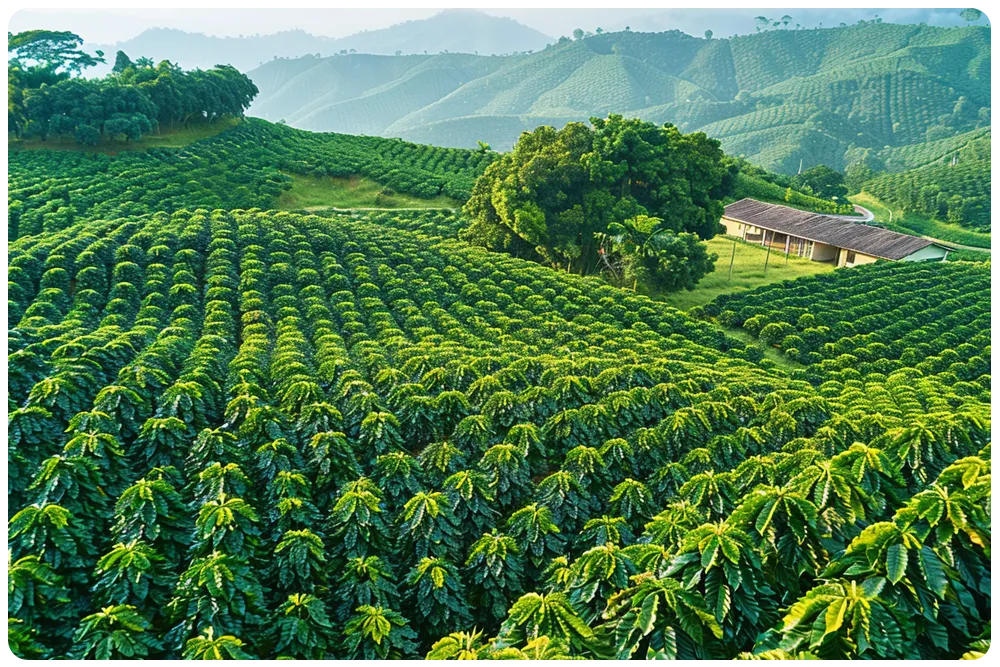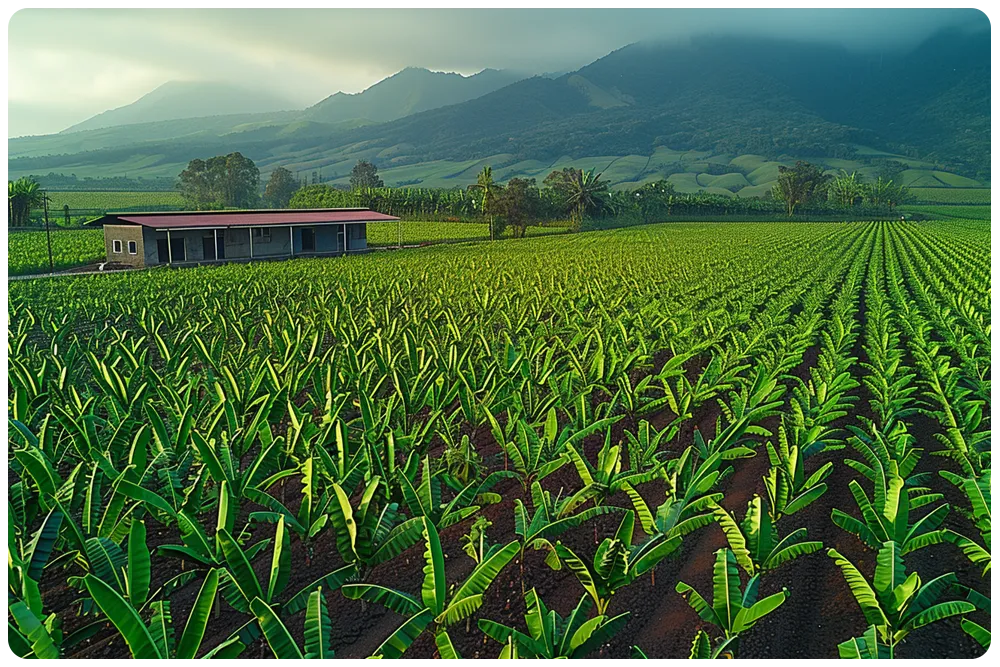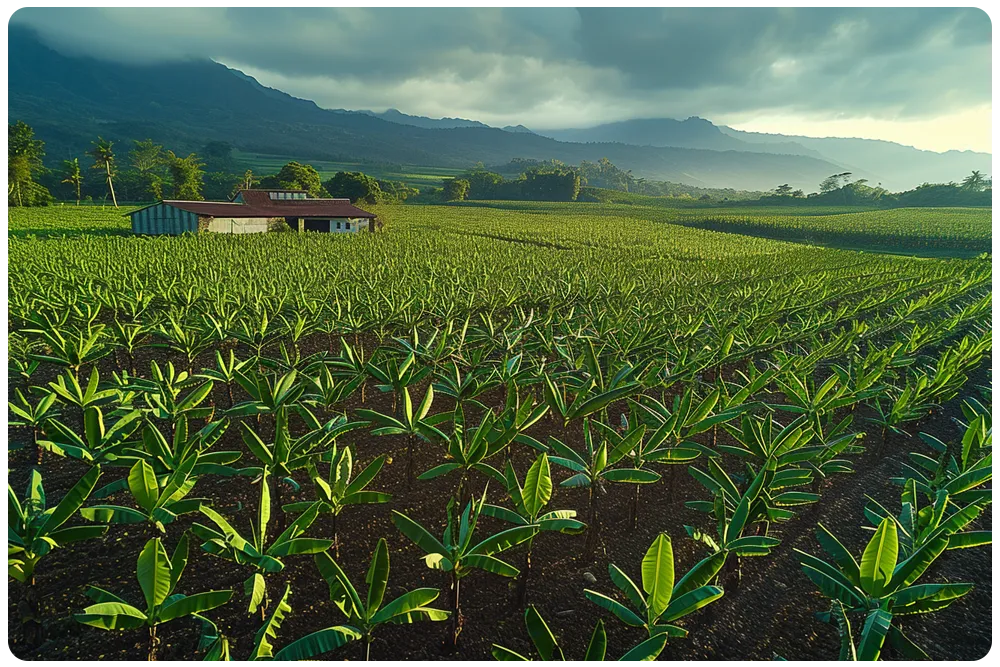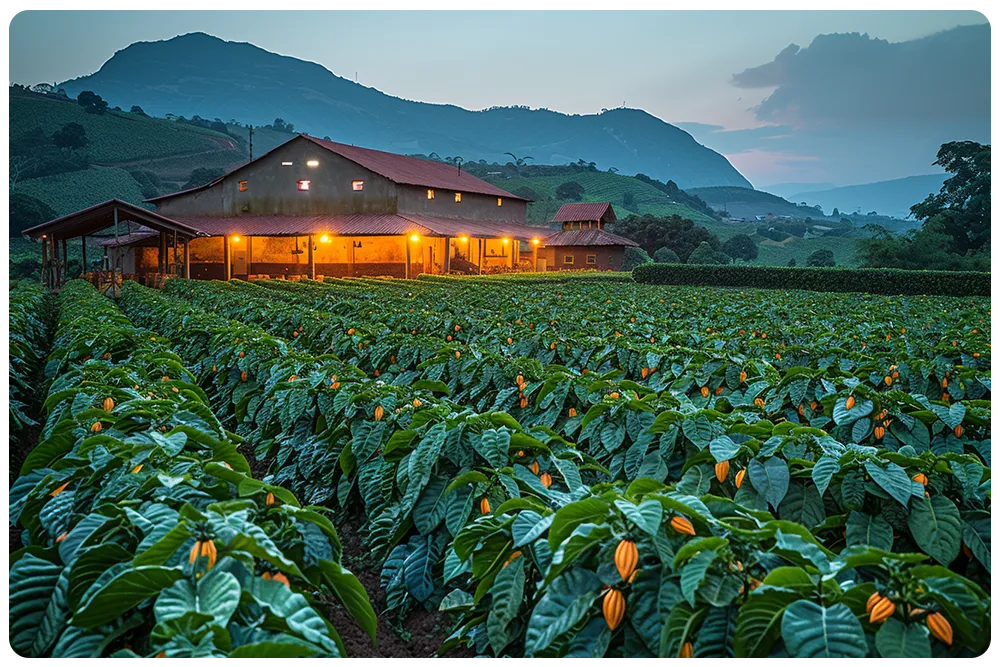Determine if drone farming suits your needs. Leverage strong technology for vital crop data and superior farm management – pushing boundaries in agriculture.
Welcome to Drone Farm
We offer a comprehensive range of agricultural drone services. With years of experience, we’ve harnessed our expertise to deliver high-quality services to our clients. Our team provides full support at every stage. Choose us for top-tier Drone Farming experiences!

Contents
- 1. Is drone farming fitting your budget?
- 2. Understanding benefits of drone farming
- 3. Evaluate efficiency of drone farming operations
- 4. Assessing risks involved in drone farming
- 5. Need for regulatory knowledge in drone farming

1. Is drone farming fitting your budget?
Drone farming is revolutionizing the agricultural sector, offering an array of benefits that range from improved crop health to enhanced productivity. But how do you determine if drone farming fits within your budgetary constraints? Let’s delve into this intriguing aspect.
Evaluating your needs
Firstly, understand that the effectiveness of a drone in farming operations largely hinges on your specific needs. A smaller farm may not require the exhaustive data collection abilities of a high-end drone. On the other hand, larger operations may experience notable gains from investing in more advanced drone technology.
Costs Involved
- Drone acquisition: The upfront cost of a drone can be one of the most significant expenditures. Prices can range widely, with basic models costing a few hundred dollars while more advanced drones can reach into the thousands.
- Operational expenses: These include costs associated with maintenance and repairs, software updates, and potential licensing needs.
- Data processing and storage: Managing the data collected by your drone may require additional investment, either in software or cloud-based storage solutions.
Return on Investment (ROI)
While the costs associated with drone farming can be substantial, it’s crucial to consider the potential return on your investment. Drones can significantly improve crop yields and reduce costs associated with tasks such as crop scouting and spraying. Factor in these potential savings when calculating the longevity and profitability of your investment.
Grants and Financing Options
Don’t forget about potential grants and financing options. Many agricultural agencies provide funding to farmers looking to integrate innovative technology into their operations. These programs can substantially reduce the financial burden, making drone farming an affordable tool in modern agriculture.
In brief, the cost-effectiveness of drone farming is highly dependent on your individual needs, the scale of operations, and the potential returns. By carefully considering these factors, you can make an informed choice that will foster productivity and sustainability for your farming enterprise.
2. Understanding benefits of drone farming
Understanding Benefits of Drone Farming
If you are considering redefining your agricultural strategies, drone farming stands out as an innovative solution to consider. Drone technology in agriculture remains a revolutionary tool, reshaping farming practices by enhancing productivity, optimizing crop yield, and promoting effective farm management.Benefits of incorporating drone technology in agriculture- Efficient Crop Monitoring: An agricultural drone, armed with advanced sensors and imaging capabilities, enables farmers to monitor their crops frequently and accurately. This precision farming strategy accelerates the detection of problem areas, thus preventing substantial crop losses.
- Time and Cost-savings: Unlike traditional farming methods which require intensive labor and resources, the usage of a drone dramatically reduces the time spent on tasks like crop inspection, soil analysis, and irrigation management, therefore resulting in substantial savings.
- Effective Pest and Disease Control: A drone’s capability to provide high-resolution imagery helps in early detection of crop illness, thereby allowing prompt intervention and minimization of damage.
- Improved Data Analysis: A drone can collect extensive data on weather conditions, crop health, and soil quality, among other things. This data can be processed and analyzed to derive insights and make informed decisions, substantially increasing the profitability of a farming enterprise.
When to Consider Drone Farming Services
If you’ve been eyeing farm optimization and sustainable agricultural practices, implementing drones into your farming operations might be the right move.- If you manage a vast acreage, the drone can offer significant benefits by scouting large areas and providing accurate, real-time information on various crop parameters.
- When dealing with persistent issues such as pest invasion, nutrient deficiency, or drought conditions, a drone can accurately diagnose the issue and guide appropriate intervention.
- In situations where conventional farming methods are proving ineffective or inefficient, drone technology can present a high-tech alternative for revamping agricultural practices.


3. Evaluate efficiency of drone farming operations
Welcome to our comprehensive guide dedicated to the efficient use of agricultural drones in farming operations. In this chapter, we delve into the intricacies of drone farming, providing a detailed, door-to-door evaluation of its effectiveness and its role in modern agriculture. This is the cornerstone for determining whether drone farming is the right choice for you.
First things first, it’s crucial to understand the primary function of a drone: real-time monitoring. A drone allows for ongoing surveillance of crops, effectively spotting issues before they escalate. Through advanced imagery, farmers can inspect crops for disease, insects, or poor nutrition. Early detection can significantly decrease crop loss and boost production.
Coupled with GPS technology, drones can pinpoint the exact location of these problems, allowing for precise intervention. Thus, a drone doesn’t just reduce the laboriousness of physical inspection; it upgrades the process by delivering superior, timely precision.
- Mapping and Surveying: A drone can serve as your personal, flying cartographer. With it, you can create detailed maps of your farm, based on real-time data. This enables an insightful overview of the overall health of your crops, including plant count, height, and biomass data.
- Precision farming: Drones can regulate the amount of water, pesticide, or fertilizer delivered to each portion of your farm, based on its unique needs. This promotes sustainable farming by minimizing waste and enhancing crop health.
- Data Optimization: Data collected by a drone can be integrated with your farm management software to provide a seamless flow of information, enhancing your decision-making process.
One might argue that the initial cost of adopting drone technology can be considerable. However, it’s important to look beyond the immediate costs and consider the long-term benefits. Reduced labor, optimized resources, and increased yields can lead to considerable cost savings, ensuring that drones are a worthy long-term investment.
Is Drone Farming Right for You?
Now that you understand the workings and advantages of drone farming, the next step is self-evaluation. Consider factors like the size of your farm, the nature of your crops, your budget, and your long-term goals. Seeking professional advice can also help streamline this decision-making process.
The world of drone farming is exciting and revolutionary, promising to redefine the landscape of agriculture. Exploring this pathway of technology could be the key to unlocking your farm’s full potential.
4. Assessing risks involved in drone farming
Assessing Risks Involved in Drone Farming
As we push the barriers of agricultural innovation, we cannot ignore the increasing relevance of drone technology in farming. Offering a slew of benefits such as efficient crop monitoring and improved farm management, drone farming indeed holds immense potential. However, before diving into this technology, it is essential to candidly evaluate the risks and challenges that drone farming presents.
One of the key issues revolves around the intricacies of drone operation. A drone is not a simple plug-and-play device. It requires training and practice to effectively control and utilize it for various farming tasks. Being a high-cost investment, any damages due to incorrect or inept handling might incur significant financial loss.
Besides, the use of drones brings forth data privacy concerns. Drones with high-resolution cameras capture detailed data of fields which, if misused, can have severe consequences. It is imperative to ensure proper data handling and storage to prevent this.
Further, farmers need to navigate through the regulatory landscape of drone operation. Different regions have unique laws regarding drone usage in agriculture, including flight height restrictions, operator certification requirements, and more.
The final crucial aspect to consider before opting for drone farming involves technology reliability. Since drones rely heavily on factors such as GPS signal strength and weather conditions, occasional disruptions can affect their performance.
- Cost Assessment: Scrutinize the expenses involved not only in drone purchase but also in maintenance, repair, and possible replacement needs.
- Data Privacy: The importance of protecting captured data cannot be overstated. Develop a robust security protocol or partner with firms specializing in data protection.
- Regulatory Compliance: Stay updated with regional laws concerning drone usage in farming. Obtain necessary permits and operator certifications, ensuring regulatory alignment.
- Technological Reliability: Understand the technological dependencies and plan for contingencies to mitigate any disruptions due to factors like GPS signal loss or adverse weather.
In conclusion, while drone farming presents exciting opportunities for agricultural efficiency, a careful risk assessment is vital for making an informed decision. Indulge in drone farming considering both sides of the coin for achieving farming success.


5. Need for regulatory knowledge in drone farming
Chapter: Need for Regulatory Knowledge in Drone Farming
Welcome to our comprehensive guide on crucial know-how required for effective drone farming. Implementing drone technology in agriculture demands more than just the capability to operate these advanced tools. Comprehensive understanding of regulatory requirements is paramount to ensure smooth, safe, and legal drone operations.
Knowledge of Drone Regulations
Designating drone technology in crop production necessitates an in-depth knowledge of the local and federal drone regulations. These laws vary by region and can affect everything from flight paths to drone usage limits. Violating these laws could lead to fines, penalties, and cessation of your drone operations, impacting your business severely.
Benefits of Knowing Drone Regulations
Having a proper understanding of drone regulations can provide numerous benefits to your farming operations. Right from ensuring legal compliance to crafting more efficient farm management strategies, this knowledge can be greatly advantageous.
Regulatory Compliance and Crop Efficiency
By operating in accordance with the rules, your drone can function more effectively by minimizing risks and maximising production. You can confidently diagnose crop illnesses, catch them early, and prevent crop losses while operating within legal parameters. Your drone can efficiently monitor large areas of farmland, provide valuable data, and thus, optimize crop production.
Steps to Acquire Regulatory Knowledge
Understand the basic drone regulations in your region.
Stay updated with regulatory changes and updates.
Attend trainings or workshops focused on drone laws and agricultural applications.
Thus, the integration of regulatory knowledge in drone farming is indispensable. With proper awareness, your drone can be a powerful tool for enhancing crop output and simplifying field management. Through diligent observance of rules, you can truly leverage the limitless potential of drone technology in agriculture.